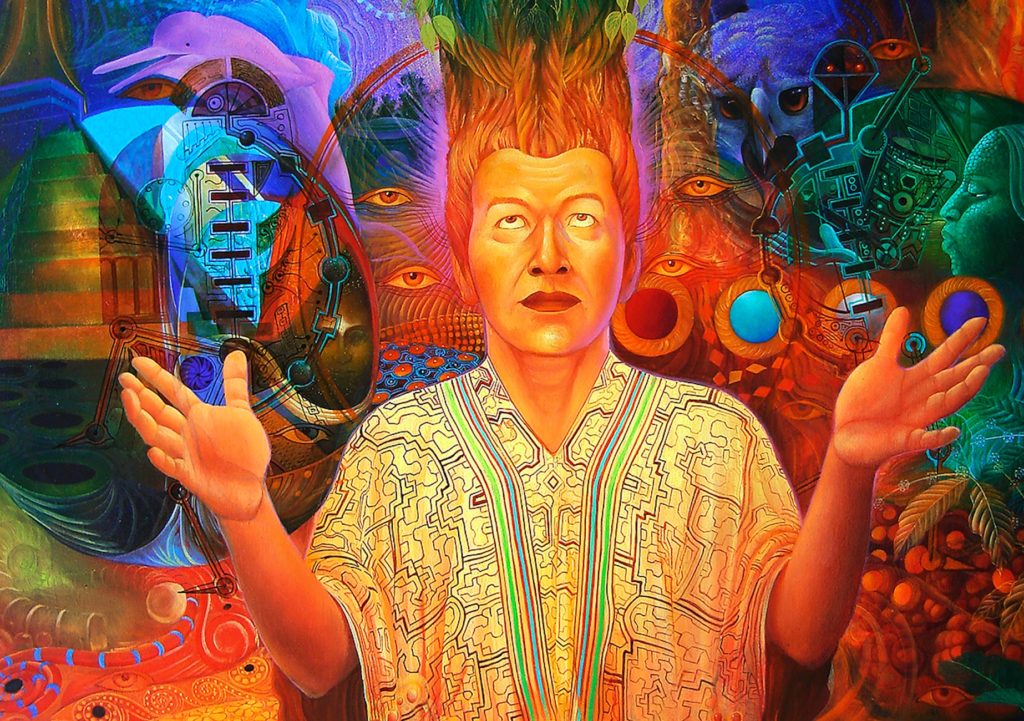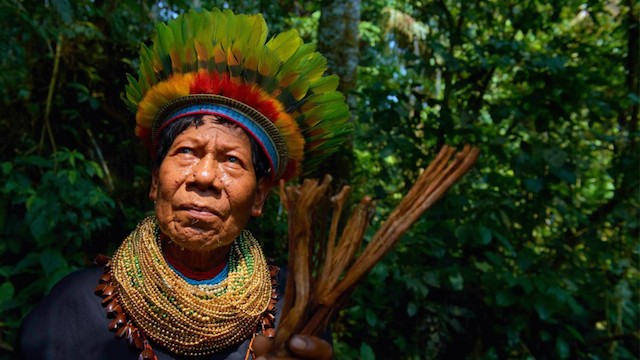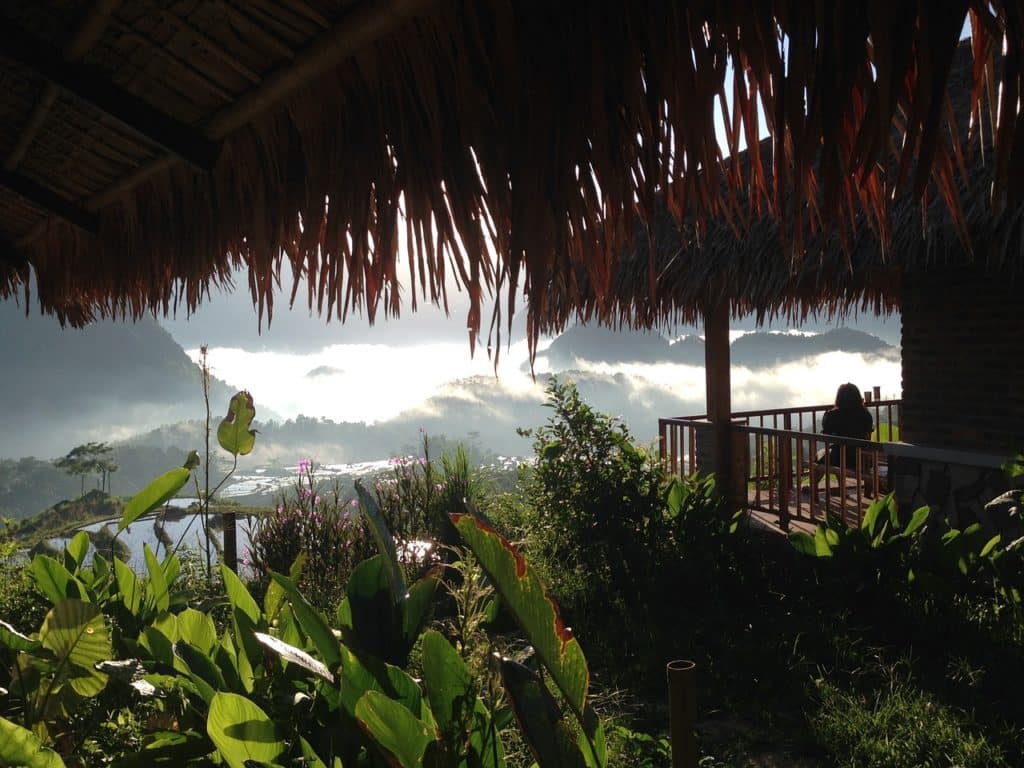How to Choose an Ideal Ayahuasca Shaman, Facilitator or Retreat Center

The first step to taking the plunge into an Ayahuasca ceremony is acknowledging the internal calling. Somewhere, somehow, the awareness of this medicine and the immense benefits crosses into your consciousness, and the Spidey senses within you say – I have to try that.
And so the hunt begins to find your perfect ceremony home.
If you’ve started the research process, you have likely felt overwhelmed almost from word go. There are a lot of options these days, and that’s the good news. But just a few minutes spent reading the accounts of other ceremony participants reveals this is a very complex world.
MUST READ:The Uncensored Guide to Preparing for Ayahuasca Ceremony
While there are loads of positive, life-changing reviews, there are almost as many traumatizing accounts. Shamans who abuse their power. Less than lackluster facilities. Brews that contain other plants not revealed to participants. The list goes on.So how do you make sure you land in safe hands; that you find the ideal location, shaman, and support staff to guide you through the great unknown?
Step 1: You define what you’re looking for.
Step 2: You go out and find it.
Here’s how to find your shamanic pot of gold.
Location, Legalities, and the Quest for Adventure
Before we sink into the heart of your deepest desires, let’s cover the obvious: Location.
Ayahuasca is indigenous only to South America, in the glorious Amazon jungle, therefore many vector to her home for an introduction. Choosing to travel to Peru or Brazil makes the most sense, as this is Ayahuasca’s birthplace, and the usage of the medicine is legal. There are also retreats in Colombia, Ecuador, and all across Central America. Legal issues are very gray in most of these locations; Ayahuasca is only legal in the context of a religious ceremony, which most retreats wholly honor.
On a personal note, I started my journey with this process over 11 years ago in the heart of the Peruvian jungle. When I heard the word “Ayahuasca” just 3 weeks prior, every cell in my body started buzzing. I didn’t do an ounce of research; I simply trusted my instincts and the then-boyfriend that suggested we journey. I was all-in from that very first moment; and obviously up for a wild adventure to a mysterious and tantalizing part of the world.
I went to the SpirtQuest center on the advice of my partner, as he had been before. I got very, very lucky, as this place is paradise. I didn’t know then all the questions that I should have asked to ensure my safety. I didn’t know what you know. But I still landed in a safe, authentic, beautiful lodge with legitimate, experienced shamans. And I’ve been back many times since.
Side note: Please know I wholly support the “trust your instincts” method, as that was obviously mine. I also think being discerning and inquisitive rocks too. Whichever way we approach this process is perfect.
So if you answer “yes” to a South American sojourn, awesome, then keep sifting through the questions below.
If you’re not feeling up to a jungle journey, that’s OK too. There are circles cropping up around Europe, Australia, Canada, and the US in droves. Countries like the Netherlands are more accepting than others, but most have the same legal stance that if the ceremonies happen in a religious context, the authorities will leave you be. Thus far, that’s been the case in these locations, with very few exceptions.
People ask me a lot of it makes a difference drinking Ayahuasca in the jungle versus a concrete jungle, or some other remote location.
My standard response is – it’s better to drink her anywhere than not drink at all.
Is it ideal to do Aya in her home? Sure, there are benefits. I’ve been in ceremony all across the globe, however, and the medicine is the medicine, if she’s brewed with integrity. I’ve had plenty of profound experiences sitting in a house in Las Vegas, so if you can go big with this process in Sin City, the benefits are accessible anywhere. Wherever you are called to sit is perfect.
MUST READ Should You Drink Ayahuasca Alone?
How do You Choose the Right Ayahuasca Retreat Center?
There are a gaggle of different types of Aya retreats because we all want different things. It’s therefore crucial to first define what is most important to you.
Here’s a bundle of questions to consider as you solidify what you want, outside of location:
- Do you care or desire to have a religious foundation to the ceremonies? Groups like the Santo Daime are recognized religious organizations that work with the medicine, and their ceremonies are very different than those not rooted in this context. There is no right or wrong answer here, it’s just what you are looking for. If you have Catholic or Christian roots that you’d like to honor, this is the perfect choice. If you prefer not to have any religious overtones, skip the Daime ceremonies.
- What type of ceremony space are you looking for? Most folks hold the process in a house or ceremonial room, but a few do it outside. Would you rather be someplace remote so you can unplug, or is it OK with you to be in a house in the middle of the city?
- Would you rather work with an indigenous practitioner, or a Westerner? Is it important that you communicate with the shaman, and thus speak the same language, or do you feel more comfortable with someone from the jungle?
- Are you more attracted to a group who does this quietly, with only singing and music from the shaman, or would you prefer a more participatory environment? Some groups encourage singing and dancing from the sitters, others ask for meditative silence so the shaman can work.
- Are you looking for an all-inclusive place you can sleep, eat, and hang out at? Then a retreat center is the obvious choice. A lot of these circles popup in homes and lofts that allow for sleeping in the ceremony space, but this isn’t the Ritz Carlton. If you need more creature comforts, you want a full-scale retreat.
This will help you narrow in on the where and the how. Now let’s talk about the who.
Finding a Shaman that You Can Trust

In my mind, who we sit with is far more important than where we sit. The shaman’s job is to create an environment that feels safe, grounded, and primed for a deep internal dive with the medicine. He or she is responsible for sourcing (and often brewing) the medicine too. So these critical elements should definitely be a huge part of your consideration.
Although we don’t normally have access to the facilitator conducting the ceremonies, there is also at least one organizer that you can talk to about your inquiries and concerns.
Here are the core questions to ask and ponder:
- Is the facilitator an actual trained shaman / healer? Or do they just administer the medicine and stand guard?(This is a big one. There are a lot of people these days cropping up that aren’t actually trained shamans; they simply pour the medicine and are there on standby in case they’re needed. I don’t recommend sitting in this context at all. Drinking Aya is entering the unknown. It’s wise to sit with someone that has been working with this medicine for at least a decade.)
- Where is the shaman from? How long have they been doing this work? Where did they train, and with whom?
- What tradition (or traditions) do they follow? What is their lineage?
- Are there other plants used in the ceremonies, like tobacco, rape, kambo, or master plants? If so, how are they administered? Does everyone have to partake?
- What’s in the actual brew? Who makes it?
- Are there restrictions on medical or psychological issues? Make sure the shaman is trained to work with you if you are dealing with things like addiction, depression, cancer, brain disorders, blood disorders, a history of heart or blood pressure problems, or if you are on any medication whatsoever.
- Does the shaman use any other healing modalities, like Reiki etc.?
- Do participants get to speak with the facilitator before or after ceremony? If not, who is available to answer questions and assist?
- When the ceremony ends, does the shaman and/or support staff stay in the ceremony location to help if needed? Or are participants expected to make their way home?
- Do participants have any say in how much medicine they drink, or are they asked to trust the person who pours? Are there multiple rounds / opportunities to take more medicine each night?
- Does the shaman doctor or work on people during ceremony? Does the shaman perform a hands on limpia on each participant, is it available upon request, or is it not the kind of thing he or she does?
The All-Important Logistics of an Ayahuasca Ceremony
Now that you’ve tackled the big questions, there are scads of logistics left to inquire about. This is not a complete list, but it does cover the biggies; these are all questions you will ask the organizer, once you’ve found a place that feels worthy of final investigation.
-
- How many people sit each night? How many attendants are there, in addition to the facilitator?
- How much do the ceremonies cost? What is included?
- What do sitters need to bring each night – yoga mats, pillows, food, blankets, water, etc.?
- What is the preparation protocol? Diet restrictions? Lifestyle restrictions before and after ceremony?
- How do you communicate medical issues, medications, or psychological concerns? Is there a medical intake form that each participant must fill out and sign as a pre-requisite to participating in the ritual?
- What time do people gather? Does the work start at a specific time, or is the start time flexible, and based on the energy of the group? When is it OK to leave?
- What is the referral process? Can you refer friends or family?
- How do they handle discretion? Are participants asked to keep their experience private, and to refrain from mentioning the names of the facilitators – for spiritual reasons and/ or legal reasons?
(Another big one. I personally would never sit with a circle that advertises on social media or a website unless they are in a fully legal country.)
- What happens at the end of ceremony? Are snacks and fruit and water provided?
- Is there any aftercare or integration assistance offered? What if you need integration support? Is there someone in the community you can call?
MUST READ:So You Want to Be An Ayahuasca Shaman?
Finding Your Medicine Home
By now, you know exactly what you want. You’re empowered to ask all the right questions to ensure you’re in the right hands.
But it’s not as simple as doing a Google search to find retreats because, as I mentioned above, if you’re going to sit outside of Peru and Brazil, I don’t recommend sitting with a well-advertised group. That feels reckless.
Trust this, however; if you are called to this work, it will find you. Aya is a master marketer. I have literally heard hundreds of stories of people manifesting the opportunity out of what felt like thin air. When it’s time, the circle, and the medicine, will find you.
If you’re feeling more proactive, there are lots of great discussion boards about Ayahuasca on Reddit, Facebook, and various other platforms. It doesn’t hurt to start asking. To put your feelers out. To get advice from those who have done this, and allow that to be part of your decision making process.
If you’re feeling the calling, congratulations. You are now well-equipped to ask all the questions you need to find your ideal home for this work.
Thank you for reading, and for having the courage to Dive In. Journey well.


Hello,
The facebook page Decriminalize California posted your article and I posted that comment:
“I wonder how Aya feels about how she’s harvested, shipped, sold everywhere? About how the Amazone is shrinking and being burnt down? About how big old vines are being cut down for tourists who contribute to the intoxication of Nature when they travel long distances by plane (pollution, noise…)? How she feels about some bits of vines being sold as necklace?
I mean, can the whole world heal on Aya? should we start harvesting Aya everywhere in greenhouses heated with nuclear electricity or coal or petroleum and watered with some water that’s already severely missing from a lot of places around the world or shouldn’t we use more local medicines grown in an environementally friendly way where we live (such as shrooms and sclerotes)?
Is it ok to promote aya ceremonies without thinking of all those issues, not even for one second?
Does anyone bother ask her?!
Not a word about those questions in [that] article.”
Then, the Decriminalize California page answered that you’re very wise in your approaches about those topics and that I may engage in dialog directly with you.
If you’re very wise about those topics, why don’t you share your wisdom in such a long article?
I really look forward to reading your wisdom on these issues! Thanks!
Hi Caroline – awww, thank you for such a thoughtful list of questions! I have written and speak regularly about these topics too, as we share the same passions. I am a huge advocate for putting plants back in the ground, and my medicine partner and I not only support individuals that are doing this hands-on in the jungle, but have also procured land in Peru to grow the plants ourselves, in a sustainable and responsible way. We are insanely passionate about making sure Aya in particular doesn’t get over-harvested, so rest assured that is a priority for us and many other facilitators. I agree with you that we need be more loud and proud about this, so thank you for the inspiration! This article was written from the perspective of keeping people safe, but I agree I should have added information on how to keep the PLANTS safe too.
And no, the whole world cannot logistically heal with Aya, nor is it the path for the masses. I’m continuously blown away by the degree to which she is popularized, and extremely mindful and concerned about doing my part to support slow, sustainable, respectful growth for both the planet and the people finding her. There is so much reckless and irresponsible usage of sacred plants, and that is truly my main topic right now.
Sadly though, to your point, very few people ask about the protection of the vine and the planet – I wholly agree I need to do more to include that in the conversation, as we won’t have her to lean in for healing if we don’t make that a priority now. Greatly appreciate your voice and urgency sister!
I have an ICD defibrillator for heart failure (dilated cardiomyopathy – ventricular tachycardia)
As ayahuasca can cause arrhythmia which my ICD can correct, do you think it is safe for me to take ayahuasca and will shamans appreciate that I am protected with my device.
Dangerous arrhythmia’s lead to cardiac arrest.
My device protects me fro sudden cardiac death. I need to know that I will be allowed to take ayahuasca before I travel to Peru 🇵🇪
right on caroline, it should be used on only those with something to overcome, i personally am going to start walking to peru from st. Cloud MN.
i have had far too many WTF events in my life, i can no longer work in a social stricture without becoming paranoid. in short i do not trust the FDA for properly defining hazzards as they so consistently fail for the sake of lining their own pockets.
I won’t need to meet Ahuhscha for cure medicine as Pls help me I need to help me it’s nessrey for me